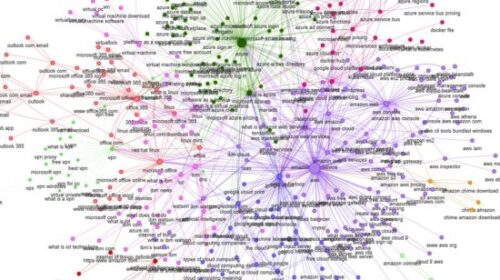Bing Celebrates Its 5th Birthday With A Walk Down Memory Lane & Extra Search Reward Credits
To celebrate its 5th birthday today, Bing has posted a retrospective of the last five years and is offering Bing Reward credit perks for any users who search on the site between now and June 9. Going all the way back to 2009, Microsoft’s search engine outlined its initial goals of leveraging semantic search. Bing […]
Going all the way back to 2009, Microsoft’s search engine outlined its initial goals of leveraging semantic search.
Bing noted how it introduced specific verticals (“like Health and Travel”), and offered “left rail categories” to help users drill down into the information they wanted:
Searching for Chicago would show you both categories for the city and the band, and only return results that made sense for that category. Later in the year, we built additional vertical experiences that cleanly segregated the mass of web content into understandable and logical experiences, like TV entertainment, Shopping, electronics, and more.
Bing Search Results Page from 2009:
 In 2010, Bing said it began partnerships with Facebook and Twitter to index content from the social sites and add a “unique human perspective” to its search queries.
In 2010, Bing said it began partnerships with Facebook and Twitter to index content from the social sites and add a “unique human perspective” to its search queries.
By 2011, Bing began building its touch-first experience to adapt its mobile search capabilities, introducing new features like geo-fencing and customized interfaces for its Android and iOS clients.
The site claimed 2012 was a “watershed” year for the web:
The sheer weight of social and multimedia data coursing through the Web made traditional results unwieldy. From rich multimedia content to real-time streams to social conversations, to the rise of apps that let you take action in the real world, digital connections were being exposed that presented people with an opportunity to do something.
In 2012, Bing launched its 3-column format, “rethinking” how search could work.
“We introduced a 3-column format that showed you what the web knew, what Bing knew, and what people knew about your query,” claimed Bing.
Bing’s 2012 3-Column Search Results Format:
 By 2013, Bing says its investments in its “knowledge repository” started to pay-off as it began to understand the billions of people, places and everything else across the globe.
By 2013, Bing says its investments in its “knowledge repository” started to pay-off as it began to understand the billions of people, places and everything else across the globe.
According to to Bing:
It was the first time that a large commercial system actually understood its place in the world and was able to understand that ‘Chrysler Building’ wasn’t just text on a page, but a thing that had windows, floors, offices.
Looking into the future, Bing says it is shifting its focus to be a search engine for our “new, changing” world, offering more relevant information to be delivered to users when and where they need it.
“You should expect proactive experiences that anticipate what you need. You should expect information to be actionable for what you need at home or work,” said Bing, going on to claim only it and Microsoft can accomplish such feats.
It ended the post with a note of gratitude to its millions of Bing users, and shared the following video illustrating how the site impacted the life of one user:
Bing Celebrates Its Birthday with Extra Search Reward Credits
Also, for its fifth birthday, Bing is offering users who search on the site between now and June 9 the chance to earn five times their usual Bing Search Rewards:
Each month your Bing searches could earn you enough credits for a $5 gift card to a retailer including Amazon.com*, Fandango, Dominos, Sephora, Xbox, Toys R Us, or for a service such as a one-month subscription to Hulu Plus or Skype, and more.
Along with the extra search credits, users will be automatically entered into a contest where five winners will receive a wide variety of prizes, including: an Xbox One, Surface Pro 3, Nokia Lumia Icon, $500 toward apps or Xbox entertainment and Windows 8.1 and Windows Phone 8.
For a more in-depth look at Bing’s first five years, check out our wrap-of all the things Microsoft’s search engine has accomplished – and a few things it could improve upon – from Search Engine Land’s Chief Content Officer Danny Sullivan: At Five Years Old, Bing Has Come Far Yet Has More To Grow.





